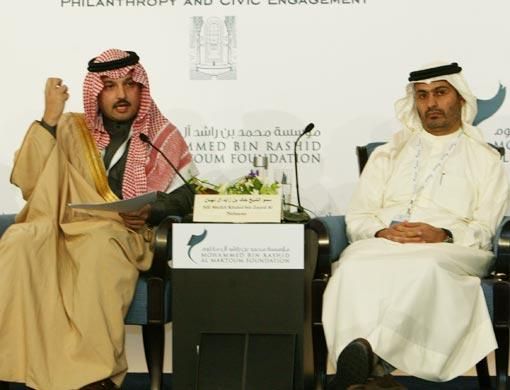Dubai: Panelists agreed that some of the challenges in advancing and coordinating philanthropic activity were the anonymity that regional donors have traditionally favoured, as well as stringent laws that restrict civil society activities in some Arab countries.
A two-day regional forum on philanthropy in the Arab world to explore new avenues of strategic charity through creative planning opened on Sunday.
Seeking to widen the vital role of philanthropy in the region's overall development, the consultation will focus on ways to tackle challenges facing philanthropic work in the Arab world.
Eight working groups at the forum are set to discuss important issues, including youth empowerment and investing in science and research.
The consultations will also look into the possibilities of philanthropic contributions in diverse fields such as health care and education.
The focus of the event will also be extended to explore the definition and practice of meaningful philanthropy, establishing media as an effective partner in promoting philanthropy and the role of an enabling legal and regulatory environment.
Fear of terrorist label
Shaikh Khalid Bin Zayed Al Nahyan, a businessman, said a subject that was often avoided in philanthropist circles was that of hesitance on the part of Arabs in giving funds to charities after September 11 due to fear of being labelled as terrorist financiers in the West, as some prominent Gulf Arab businessman have been since then.
Governments, he said, should step in to restore the credibility of the charity organisations and contributors.
He also said the secrecy in which charitable acts have traditionally been conducted hinder efforts to coordinate, organise and institutionalise philanthropic activities.
"We need to transform our charitable acts from merely quantitative to more qualitative charity," he added, emphasising on donations in areas that will have long-term benefits.
Nabeel Al Yousuf, Acting CEO of Mohammad Bin Rashid Al Maktoum Foundation, said the virtues of philanthropy and social togetherness are deeply rooted within the Arab society.
"However, the Arab world needs strategic planning to a shift from traditional means of donating to modern and effective ways to battle the high rates of unemployment and illiteracy in the Arab world," he said.
Mona Abu Sulaiman of Saudi Arabia's Kingdom Holding, said that endowment in the Arab world should be in the form of continuous investment in society.
"We still don't have highly qualified people in the field of philanthropy to recognise the root causes of the problems and a solution corresponding to these challenges ... it is necessary to have adaptability and sustainability in the Arab world to have effective and strategic philanthropy efforts."













